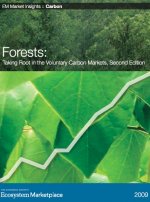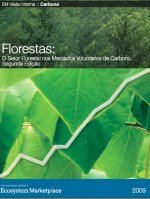Forests
Taking Root in the Voluntary Carbon Markets
View PublicationOver the past year, the term ‘REDD’ (reduced emissions from deforestation and degradation) has
risen from obscure acronym to hot-button issue for policymakers, conservation groups, investors
and academics across the globe, with good reason. According the Intergovernmental Panel on
Climate Change (IPCC), land-use change accounts for approximately 20% of global greenhouse gas emissionsmore emissions than the transportation sector world-wide. Most of these emissions are the result of deforestation driven by demand for agriculture and timber. In response to rapid deforestation, stakeholders are aggressively sculpting policy and market tools to incentivize REDD or ‘avoided deforestation’ projects.
While the role of REDD in both the international and emerging US regulated systems is being
hammered out, the voluntary carbon markets are serving not only as a testing ground for the
development of REDD carbon credits, but also building up expertise and generating immediate
action. This publication is designed to introduce practitioners to the carbon markets, in particular the voluntary markets, and the current climate for reforestation, afforestation and REDD projects
generating carbon credits. It is a collection of articles and one book chapter commissioned by the
Ecosystem Marketplace.


